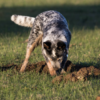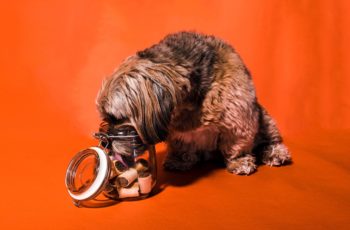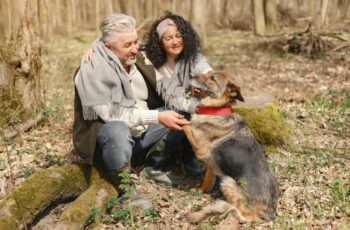Dogs, much like us, have their own set of likes and dislikes. And while we might find their quirks and behaviors endearing (or at least tolerable), our pups might not always feel the same about ours. Dogs love unconditionally, but there are still some things that we, their beloved humans, do that they find utterly annoying.
Here are a few things that might be pet peeves of your pet:
1. The Overbearing Hug
Humans are social creatures. We love big bear hugs and cuddles, and often, we show our affection to our pets in the same way. But did you know that your dog might not be as enthralled with your bear hugs as you might think?
Dogs are descendants of wolves, and in the wild, putting a limb over another creature is a sign of dominance. So when you envelop your pooch in a big hug, they might interpret it as you trying to assert control. It could make them feel trapped or threatened. Instead, try showing affection in ways your dog can understand, like gentle petting or belly rubs.
Of course, every dog is unique. Some might not mind hugs, while others might feel uncomfortable. The key is to read your dog’s behavior and respect their boundaries.
2. The Excessive Noise
Have you ever jumped at the sudden sound of a popping balloon or a roaring thunderstorm? Now, imagine that sound amplified many times over. That’s what your dog experiences due to their highly sensitive hearing.
Loud music, the vacuum cleaner, fireworks – these are all things that can cause stress and anxiety in dogs. Even everyday noises like the ding of a microwave or the sound of a sneeze can startle them. It’s important to be mindful of your dog’s sensitive ears and try to minimize loud and sudden noises as much as possible.
If you notice your dog showing signs of distress during noisy activities, consider finding ways to make the noise less intense for them. For example, during a thunderstorm, you could create a cozy, soundproof spot for them to retreat to.
3. The Unpredictable Schedule
Just like us, dogs appreciate a predictable routine. They like knowing when it’s time for a walk, when they’ll be fed, and when it’s time to sleep. A routine gives them a sense of security and helps them feel in control of their environment.
When we constantly change our schedules, it can be stressful for our dogs. They may not understand why their dinner is late or why their walk was skipped. This unpredictability can lead to anxiety and behavioral problems.
While it’s not always possible to stick to a rigid schedule, try to maintain a consistent routine as much as you can. Your dog will appreciate the predictability, and it can help reduce stress and anxiety.
4. The Sudden Change of Scents
Dogs have an incredible sense of smell. They rely on their noses to navigate the world around them, and sudden changes in scent can be quite jarring for them.
If you’re someone who loves to switch up your perfume or if you’re constantly trying out new scented candles, your dog might not be a fan. These strong, unfamiliar smells can be overwhelming to their sensitive noses. They may also not appreciate the scent of certain cleaning products.
Try to stick to unscented or mildly scented products when possible. If you do need to introduce a new scent, do it gradually to give your dog time to adjust.
5. The Teasing and Trickery
Ever pretended to throw a ball, only to watch your dog run off in search of the non-existent toy? While it might seem like harmless fun to you, your dog probably doesn’t appreciate the trickery.
Dogs trust their humans implicitly, and when we break that trust, even in small ways, it can be confusing and frustrating for them. It’s important to remember that while dogs are incredibly intelligent, they don’t understand the concept of pranks or teasing. What seems like a fun game to you might be a stressful and confusing experience for them.
Instead of teasing or tricking your dog, engage them in positive, enriching activities that can help build trust and strengthen your bond. Things like fetch, tug-of-war, or even a simple game of hide and seek can provide mental and physical stimulation without causing unnecessary stress.
6. The Rushed Walk
Sniffing is a biological necessity for dogs, and their extraordinary sense of smell is their primary way of interpreting their world. A dog’s powerful nose provides an incredible amount of information about their environment, so when we hastily pull them away from a spot they’re sniffing, we’re depriving them of a chance to explore and learn. It’s akin to someone grabbing a book out of your hands mid-sentence. It’s not just annoying—it’s downright frustrating.
Yet, we often find ourselves doing this, either out of impatience or the misguided belief that we’re keeping them focused on the walk. But here’s the thing: for dogs, sniffing is the walk. It’s their way of exploring, understanding, and connecting with their surroundings. And just like how we wouldn’t enjoy someone interrupting our reading, they don’t appreciate us interrupting their sniffing.
So, the next time you find yourself growing impatient with your dog’s sniffing, remember: you’re not just indulging a habit. You’re respecting their need to explore and understand their world. You’re acknowledging their pet peeve and making a conscious decision to better their walk—and their life.
Conclusion
All dogs are different, and what bothers one dog may not have any effect on another. What’s important is that you pay attention and learn your own dog’s pet peeves so you can avoid the things that stress or annoy them. By making adjustments to meet their needs, you can ensure a happy and harmonious relationship with your canine companion.



